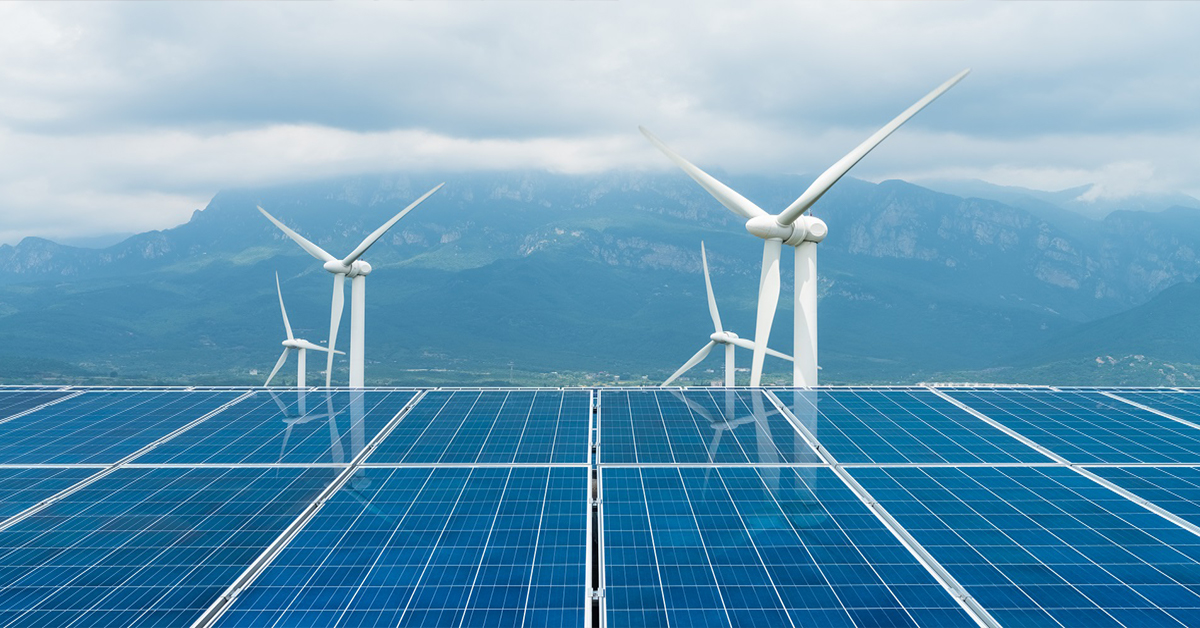Imagine a world where your daily commute is powered by clean energy, the food you eat is grown sustainably, and the products you use are made from recycled materials. A world where climate change is being reversed and the planet is thriving. This isn't a distant dream but a reality we can create today. In this blog post, we will examine the importance of sustainability and explore potential innovative environmental solutions. So, let's embark on this journey together and discover the possibilities of a green and sustainable world.
What is Sustainability?
Sustainability is the concept of living within the means of our natural resources. It ensures we utilise Earth's precious resources wisely to fulfil our present needs and preserve sufficient resources for future generations. Sustainability requires balancing environmental, social, and economic demands - known as the three pillars of sustainability.
Why is Sustainability Important?
There are several reasons why sustainability has become crucial:
- Natural Resource Depletion: Many natural resources like fossil fuels, forests, and groundwater are being used up faster than they can be replenished. Pursuing indefinite economic growth while exhausting finite resources is unsustainable.
- Loss of Biodiversity: Activities like habitat destruction, overhunting, and pollution are causing plant and animal species to go extinct at alarming rates. Preserving biodiversity is essential for maintaining balanced ecosystems.
- Waste Accumulation: Human activities generate substantial waste that leads to pollution if not disposed of properly. Sustainable practices like recycling, reusing, and reducing waste are imperative.
- Climate Change: Burning fossil fuels emits greenhouse gases that trap heat, causing global warming and its devastating impacts. Shifting to renewable energy is critical to mitigating climate change.
- Environmental Degradation: Deforestation, desertification, soil erosion, and water contamination degrade habitats and reduce ecological productivity. Sustainability seeks to prevent further environmental damage.
- Overpopulation: Rapid human population growth intensifies demands on natural resources and environments. Achieving sustainability requires stabilising population growth.
- Social Inequity: The poorest populations often face disproportionate exposure to environmental burdens like pollution and extreme weather. Sustainability promotes social justice.
With the planet under immense strain, we must transition to more sustainable practices before it is too late.
How Can We Achieve Environmental Sustainability?
There are many ways we can work towards building sustainable societies that preserve the environment for current and future generations. Here are six environmentally friendly solutions:
1. Transition to Renewable Energy
Fossil fuels are unsustainable as they deplete quickly and emit greenhouse gases. Shifting to renewable sources like solar, wind, geothermal, and hydropower will allow indefinite, clean energy production. Renewables offer a sustainable solution to growing energy demands.
2. Adopt Circular Economy Principles
The traditional linear economy follows a wasteful take-make-dispose model. Circular economies aim to eliminate waste by reusing, repairing, refurbishing, recycling, and upcycling materials. Transitioning from a linear to a circular model reduces resource depletion and waste accumulation.
3. Sustainable Transportation
According to Our World in Data (2020), the transportation sector produces nearly 20% of energy-related carbon emissions globally. Electrifying vehicles and improving walking, cycling, and public transit infrastructure will enable greener transportation.
4. Sustainable Agriculture
Modern industrial agriculture promotes biodiversity loss, soil erosion, and excessive water usage. Sustainable techniques like drip irrigation, integrated pest management, and no-till farming protect ecosystems while maintaining high crop yields. Additionally, reducing food waste and meat consumption further improves agriculture's sustainability.
5. Population Management
Stabilising global population growth through family planning services, education, and promoting gender equity will reduce human environmental impacts. Slowing population growth eases the strain on resources and environments.
6. Efficient Resource Utilisation
Improving efficiency in manufacturing, building design, irrigation, and energy generation optimise resource usage. Further, meticulous monitoring of ecological systems helps quickly identify sustainable management issues. Using resources judiciously reduces waste.
Prepare for the Future of Sustainable Growth
DMU Dubai's Master's degree in Energy and Sustainable Development (MSc) gives students the expertise to lead sustainability initiatives. They learn to achieve decarbonisation through sustainable energy, efficient production processes, and organisational change.
Hands-on learning experiences are integrated through research projects, labs, and technology demonstration hubs. This enriches understanding of sustainable development concepts and applying them to real-world problems.
A career in sustainability offers strong growth potential. Research from the International Renewable Energy Agency (2020) predicts 42 million global jobs in renewables by 2050, four times the current level. Investments in energy efficiency could generate 21 million additional roles, while improving grid flexibility may create 15 million new positions.
Conclusion
Achieving environmental sustainability to protect the planet and society requires transforming energy systems, economics, lifestyles, and thinking. We must make sustainable travel, food, and household management choices as individuals. Most importantly, sustainability calls for collaboration between governments, businesses, and communities to implement solutions. We can build an ecologically sustainable future with determination, creativity, and perseverance.
The MSc in Energy and Sustainable Development from DMU Dubai equips professionals to make an impact through innovation and environmental stewardship. Graduates gain valuable skills for the expanding green economy. So, are you ready to take the next step towards a sustainable future? Apply now and join the growing community of environmentally conscious professionals working towards a greener tomorrow!
De Montfort University Dubai
Dubai International Academic City
Post Box: 294345
Dubai, UAE
About DMU
Useful Links
© Copyright DMU Dubai 2024

